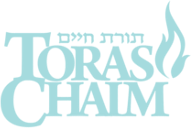Each week in our shul, we pray for Israeli soldiers missing in action and assumed held by enemy forces. We have been praying for these young men each Shabbos for many years, praying for them to be restored to their families. The list that we use has names that have been penciled in and those that have been crossed off, for better or for worse. We stopped praying for Ehud ben Malka Goldwasser when his death was confirmed and his remains returned for burial in July 2008. Gilad ben Aviva Shalit was crossed off the list in October 2011 with joy and relief, when he returned home smiling after five years in captivity. More recently we removed the name of Jonathan Pollard – the only non-soldier on the list – when he was released on parole after thirty years.
We now face a dilemma. The names remaining on the list are of people who have not been heard from in more than thirty years. People like Zachary Baumel, Yehuda Katz and Ron Arad have been missing in action since the early and mid-80’s, and are presumed dead. A prayer for them to return alive would likely be what the Talmud refers to as a Tefillas Shav, a meaningless prayer. While this has been the case for a while, as long as we had even one known, live prisoner to pray for we could comfortably include these other names on the list. But at this point, should we keep saying this prayer without a single known, live prisoner who could benefit from it?
I would vote that we should. Because this prayer is different than other prayers we offer. When we pray for the well-being and the success of the soldiers of Tzahal, we are praying for our national success. This prayer is a prayer for individuals, for someone’s son, brother or husband. That is a special perspective we dare not forfeit.
When Rachel turned to Yaakov asking him to grant her children, “and if not I shall die”, Yaakov responded with a feeling of helplessness, as he was not G-d to provide or to withhold her children. Interestingly Yaakov did not respond as Elkana, the husband of Chana had. When Chana was saddened by her barrenness, Elkana asked her, “Why do you cry and why are you so sad? Am I not better for you than ten sons?” Yet Yaakov did not suggest that, as he knew that for Rachel her children were absolutely precious, and that indeed he was no substitute. And he was correct in understanding her this way, as it is Rachel’s cries for her children – her special feeling for each and every one of her children – that stir G-d’s response with a promise for our return.
Years ago I heard a beautiful insight from Rav Nachman Kahana of the Old City of Yerushalayim. He noted that in the verse we read in the Haftarah of the second day of Rosh Hashanah, referring to the cries of Rachel for her children, the verse states that מאנה להנחם על בניה כי איננו, “Rachel refuses to be consoled for her children, as he is not there.” This presents an obvious grammatical inconsistency, as one could say “her child as he is not there”, or “her children as they are not there”. What could be the meaning of the shift from plural to singular form, saying that she refused to be consoled over “her children, as he is not there”?
Rav Kahana – a father of eleven bli ayin hara – explained this beautifully and simply, by citing his wife. If on a particular Shabbos they would sit down to the dinner table and one of their eleven children wasn’t there, his wife would sigh and say, “Where is everybody?” A natural and true motherly instinct is to feel and to note every single individual child, and if even one is missing it is as if everyone is incomplete. Her family was incomplete if even one was not there.
It is that feeling that we can never lose sight of, and that in Israel is the natural instinct of our people.
I was in Israel some time ago, and my flight back to America was scheduled to leave at 6:00 am, so at around 3:00 am my cab arrived for the trip to the airport. The driver, Yehuda, and I worked together to hoist the oversized suitcases into the trunk and I went to the passenger door to get in, only to be a bit surprised to find an elderly gentleman already seated there.
When I took my seat in the back, Yehuda apologized and introduced me to his father, who was along for the ride. After a few minutes of getting to know each other, I learned that Yehuda’s father was a veteran of the wars of ’67 and ’73, and that Yehuda himself was a member of the Golani brigade, and had fought in the Gaza war. As I wondered about Yehuda’s father coming along for the ride at the late hour, I figured he must suffer from insomnia and came along to pass the time. I was wrong. As Yehuda explained, during the previous few weeks there had been many random acts of violence. As a result, Yehuda’s father did not want him to ride alone, and so he had begun accompanying him on his late night rides.
Yes, this Golani veteran, whose father presumably had not accompanied him on missions into Gaza, still had a father to whom he was simply his son, a father to whom the cruelty of random violence stirred his deepest love and concern, not for our national security, but for one person, his son, Yehuda.
We are a nation of sons and daughters. We must never stop seeing and sensing the needs of, and praying for, each and every one of them.
